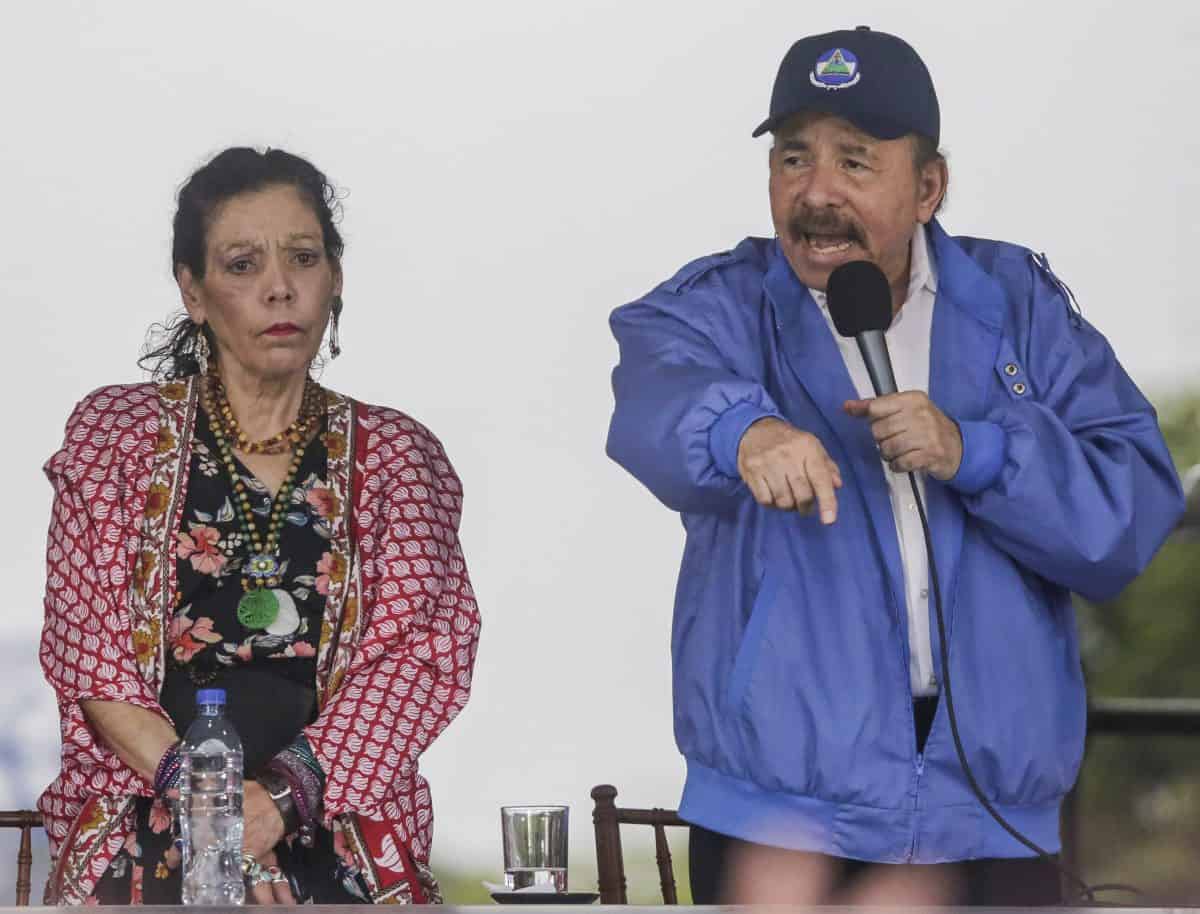Nicaraguans face a future of repression and economic hardship under long-term leader Daniel Ortega, who won elections Sunday widely denounced as a “sham,” analysts say.
Ortega, 75, has already been branded a dictator by Western countries that have threatened to ramp up penalties after he clamped down on opponents in the lead up to the election.
Sunday’s vote took place with challengers to Ortega and his wife and Vice President Rosario Murillo either in jail or under house arrest.
Next year “will be a decidedly difficult year for the government, but also for the population, both in economic and political terms,” Elvira Cuadra, security and governance expert at Nicaragua’s IEEPP political studies institute, told AFP.
The European Union and United States imposed sanctions on allies and family members of Ortega and Murillo after the regime’s crackdown on anti-government protests in 2018, during which more than 300 people were killed.
Punitive measures have increased since the detention of 39 opposition figures, including seven potential presidential candidates, starting in June.
EU foreign policy chief Josep Borrell said the bloc would “consider all instruments at our disposal to take additional measures” against Ortega’s “autocratic” regime.
On Monday, US Secretary of State Antony Blinken said Washington would deploy sanctions and other measures, “to promote accountability for those complicit in supporting the Ortega-Murillo government’s undemocratic acts.”
The Organization of American States, which has strongly criticized the opposition arrests, will discuss the issue at a General Assembly this week, where Nicaragua risks suspension.
– No ‘magic wand’ –
But experts say increasing isolation is unlikely to force Ortega’s hand.
They warn it could instead worsen Nicaragua’s dire economic situation and fuel migration.
“Not recognizing the legitimacy of an election does not function like a magic wand which transforms the situation of democratic collapse in Nicaragua,” said Kevin Casas of the Stockholm-based Institute for Democracy and Electoral Assistance.
Nicaragua will likely seek to soften the blow of sanctions by forging stronger alliances with US rivals Russia and China, said Casas.
The population, however, has nowhere else to turn.
Nicaragua, with 6.5 million people, relies heavily on foreign money: from January to August, it received remittances of almost $1.4 billion from citizens abroad.
Assistance from the World Bank, International Monetary Fund, Inter-American Development Bank and Central American Bank for Economic Integration amount to over $1 billion so far this year, said independent political analyst Eliseo Nunez.
But that “will stop” in 2022, he added.
Central America’s poorest country already had a poverty rate of 44.4 percent in 2019, before the Covid-19 pandemic, according to the Nicaraguan FIDEG center for poverty research.
“People live on the bare minimum, the cost of living is too high, they run survival businesses selling anything from water to car parts and second-hand clothes from their homes or on the street,” economist Luis Nunez told AFP.
Given the economic and political challenges, some 100,000 Nicaraguans have fled abroad since 2018, the Inter-American Commission on Human Rights said.
“Ortega is operating in an increasingly hostile environment,” said an International Crisis Group analysis, noting he has “roughly half the popular support he enjoyed before 2018” and has severely damaged relations with the private sector and the Catholic Church.
Ortega has alienated swaths of society, with those arrested including politicians, community leaders, students, journalists and business people — all labeled “terrorists” working to overthrow him with US backing.
Nicaraguan Catholic priests on Sunday urged the faithful to boycott the “electoral farce.”
– ‘Ortega only has repression’ –
“Ortega has no instrument to reverse the political crisis, the international isolation and the social expressions of the crisis, such as unemployment, underemployment and poverty,” said Nicaraguan political analyst Enrique Saenz.
“Ortega only has repression and repression is not enough to indefinitely subdue the rejection of the population.”
But Cuadra noted a climate of “repression and surveillance” makes rebellion difficult.
Ahead of Sunday’s vote, which official results showed he won with 75 percent, Ortega announced he would convene a national dialogue.
But Eliseo Nunez knocked this as just an attempt “to seek the legitimacy he did not win at the ballot box.”
Observers said Ortega might offer to free some of his jailed opponents and give limited power to business leaders, though no real compromise should be expected.
If talks do take place, “it is probably going to force some actors, such as big capital, to establish a space for dialogue, but it is based on wills held hostage at the point of threats and of arrests,” said Cuadra.
According to Saenz, the only political groups Ortega tolerates, are those “that are subordinate to his will in exchange for small perks.”






